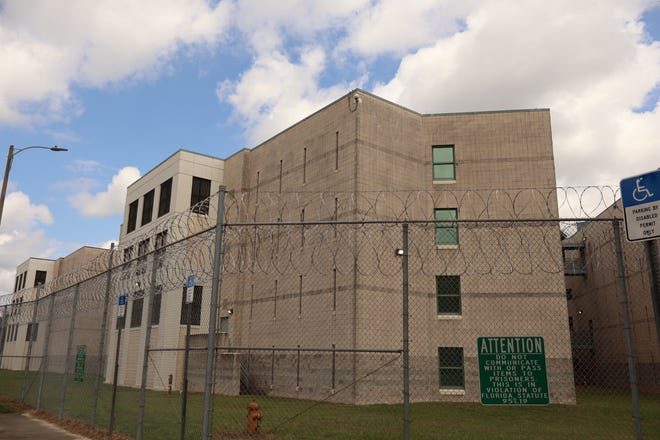

The Leon County Detention Facility has reported six inmate deaths since the beginning of 2024, five of which occurred since April, according to WFSU.
James Key, 61, was the latest inmate to die on Aug. 1 after suffering from pre-existing medical conditions. Key had been awaiting trial for allegedly murdering his wife and requested medical attention after a fall in his cell. Despite receiving treatment at the facility and being transported to a hospital, Key died later that day.
“This was a medical case, and there’s nothing we can do to control that,” Leon County Sheriff’s Office spokesperson Shonda Knight said. “But we are always evaluating and looking for things we can do to improve.”
The rise in inmate deaths at the Leon County Detention Facility is part of a broader trend across the nation.
According to a 2022 National Institutes of Health (NIH) study, from 2000-2019, U.S. prisoner mortality increased by 11%, drug- or alcohol-related deaths nearly quintupled and suicide rates sat around double the national average.
The same factors have contributed to the deaths in Leon County, where inmates have died from drug ingestion, suicide and pre-existing medical conditions, according to the Tallahassee Democrat.
“We’ve had some instances where people have ingested drugs into their system just prior to being arrested,” Undersheriff Ron Cave said. “Many of these individuals have not had access to regular health care before they arrive here.”
After touring the facility last year, Leon County Commissioner Bill Proctor describes the situation as “disturbing.”
“We have a jail population that is not being driven by criminality but more so by the condition of mental illness,” Proctor said. “There are people out here who have been traumatized as children, abandoned, child abused, divorced and homeless. But everybody out here that is feeling bad and emotionally distressed is not on medication… We have a 94-1 ratio of inmates to staff, and on some nights, we’re short-staffed, making it even harder to provide care.”
Ryan Ray, a representative of the Leon County Democratic Party, voiced concerns to the FSView about the state of police oversight and accountability in Tallahassee. Ray points out that local efforts for transparency have been undermined by recent state legislation and pressure from groups like the Police Benevolent Association (PBA).
“They want less transparency and less accountability,” Ray said, referring to the push to disband police oversight programs.
He added that the recent decision to allocate $135 billion for the construction of a new police station, complete with a coffee shop and museum, was “a big missed opportunity” to fund more meaningful reforms.
Ray stresses that untreated mental health issues in prisons lead to worse outcomes for inmates, calling it a “social problem.”
“When people can’t get access to primary care, they end up needing to go to the emergency room, and it ends up being more deadly and more expensive for everyone.”
As national and local leaders continue to call for reforms, the Leon County Sheriff’s Office has started consulting with organizations like Florida State University to improve suicide prevention efforts.
The Substance Abuse and Mental Health Services Administration (SAMHSA) reports that correctional facilities with comprehensive mental health programs experience fewer disciplinary incidents and better overall inmate behavior.
“The status quo is unsustainable,” former state senator and founder of the Florida Policy Project Jeff Brandes said. “Our prisons, primarily located in rural North Florida, face severe challenges in attracting the necessary medical and correctional staff.”
Judge Steve Leifman, an expert on mental health and criminal justice, launched the Criminal Mental Health Project (CMHP). This program takes those with mental disorders out of the criminal justice system to provide them with community treatment.
Leifman said that facilities that prioritize early intervention, regular screening and ongoing treatment see far fewer incidents of violence and self-harm, and inmates are better prepared to reenter society when they are released.
This post was originally published on this site be sure to check out more of their content.








